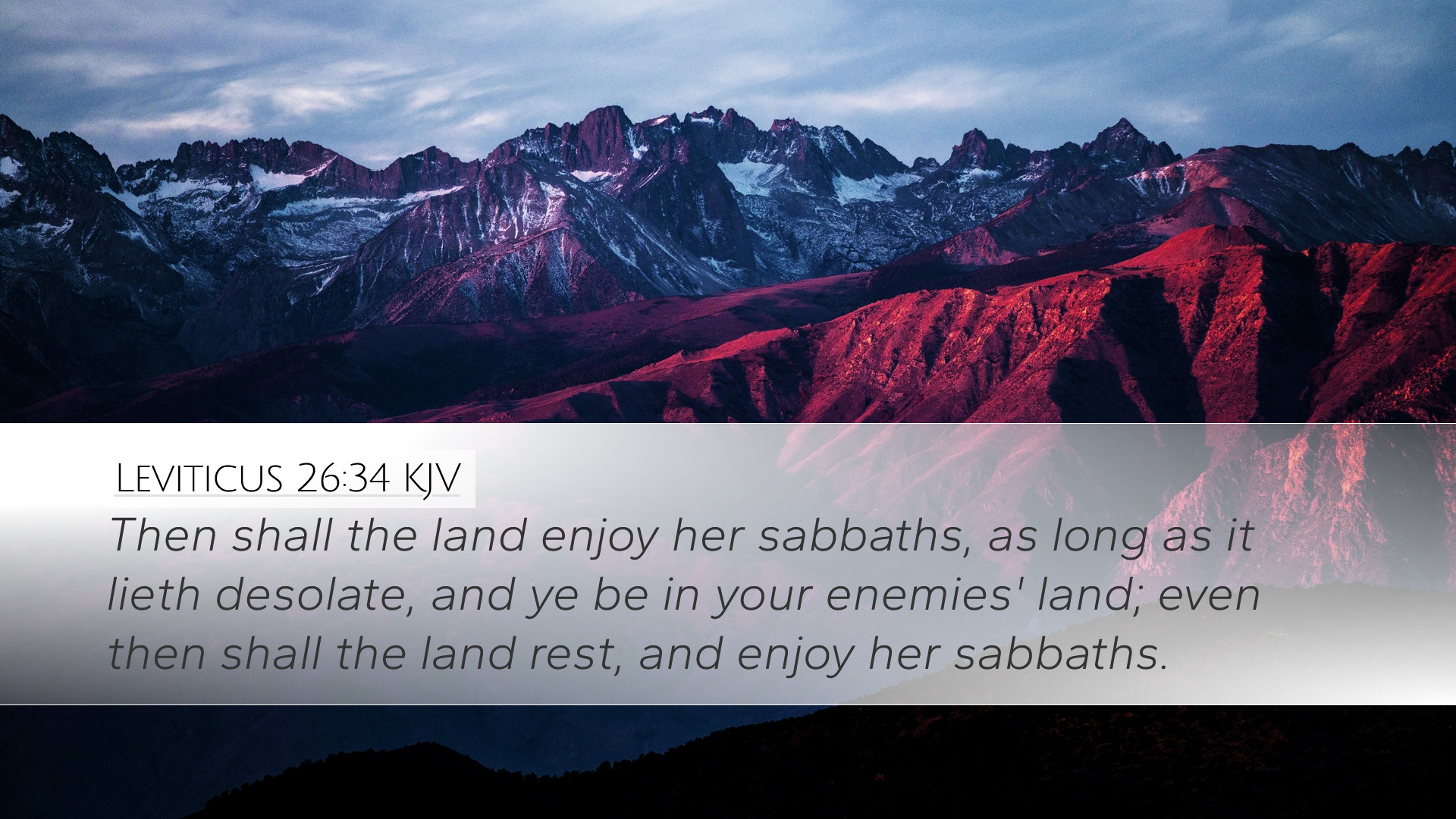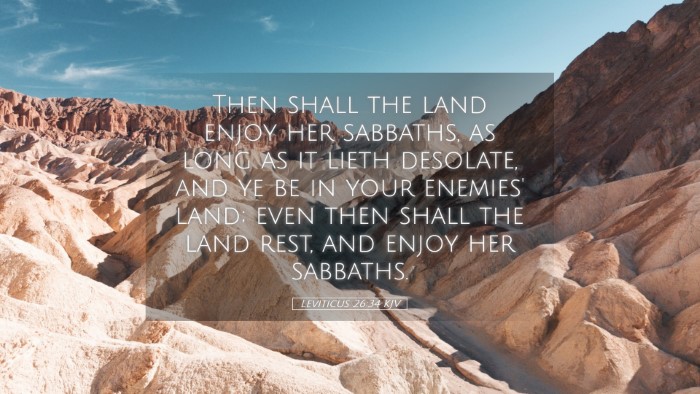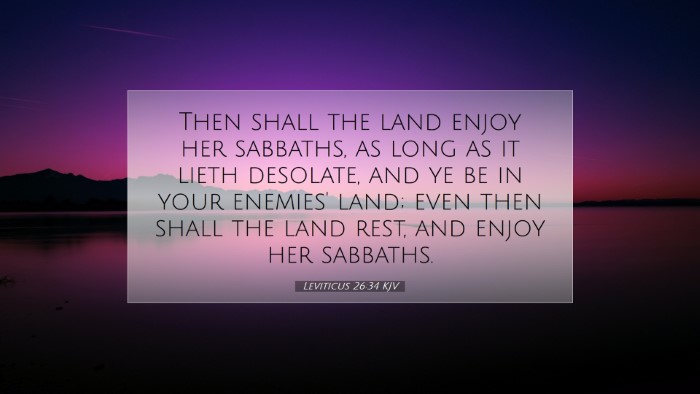Commentary on Leviticus 26:34
Verse: "Then shall the land enjoy her sabbaths, as long as it lieth desolate, and ye be in your enemies' land; even then shall the land rest, and enjoy her sabbaths."
Introduction
This passage from Leviticus 26:34 addresses critical themes in the covenant relationship between God and His people, particularly regarding obedience, the observance of the Sabbath, and the consequences of disobedience. In the holistic view of the biblical narrative, this verse emphasizes the importance of rest and the land's need for rejuvenation.
Historical Context
Leviticus was written during a crucial period when the Israelites were establishing their identity and legal framework in the wilderness. Here, God outlines the blessings for obedience and the curses for disobedience — a covenant that is rooted in both personal conduct and communal wellbeing.
Feature of Rest
Hebrew law incorporated a profound understanding of rest that extended beyond individual sabbatical observances to include the land itself. The land, as an integral part of creation, is depicted here as also needing to experience rest, much like the people.
Theological Insights
The Importance of Sabbath
The commandment to allow the land to rest underscores the significance of Sabbath throughout the biblical narrative. According to Matthew Henry, "It is God’s command, and it is for our benefit; the sabbath is for man, but the land cannot be neglected without consequence." This reinforces the view of Sabbath rest as a divine ordinance that brings both physical and spiritual renewal.
Consequences of Disobedience
The poignant reality expressed in this verse illustrates the consequences of the Israelites' disobedience. Adam Clarke expounds that when the people do not honor God by keeping His statutes, the land is forfeited to a state of desolation: "A lack of observance leads not only to national calamity but also to environmental decay."
Exegesis of Key Phrases
“Then shall the land enjoy her sabbaths”
This phrase reflects the principle that God's covenant extends to all creation. The term "enjoy" suggests a restoration and fulfillment. As Albert Barnes states, “The land has rights given by God as part of the covenant promises.” This imaginative perspective places the land in relational status with its People of God.
“As long as it lieth desolate”
This implies a prolonged period during which the land must remain unproductive and barren. According to Henry, "The desolation of the land must serve as a reminder of the consequences of abandoning God’s commandments." Indicating a direct correlation between the moral state of the people and the physical state of the land, this phrase forewarns future generations about accountability.
“Ye be in your enemies' land”
Here, the text suggests that the people’s exile not only results in personal suffering but also affects creation itself. Clarke highlights “the dual reality of spiritual oppression, compounded by geographical separation.” The implication is that sin leads not only to exile but also to a promise of eventual restoration once the land is allowed to rest and rejuvenate.
Practical Applications
For pastors, students, theologians, and scholars, this verse serves as a vehicle for deeper reflection on the socio-environmental implications of scriptural mandates. It challenges the modern reader to consider how neglect of divine principles leads to societal and ecological degradation.
Reflections for Pastoral Ministry
Leviticus 26:34 provides a foundation for preaching on the significance of rest in both personal and communal settings. Pastors may encourage congregations to recognize the rhythms of work and rest, reflecting on how neglecting these can lead to spiritual and physical desolation.
Insights for Theological Study
Theologically, this verse becomes a study in the interrelation of human obedience and creation's state. Scholars can explore the significance of the Sabbath as a holistic principle which encompasses not just individual rest but an ethic of care for land and community.
Conclusion
In conclusion, Leviticus 26:34 serves as a significant reminder of the covenantal relationship between God and His creation. It calls for recognition of the interconnectedness of humanity and the environment, elevating the need for obedience to divine commandments as essential for holistic wellbeing. The land's rest is a vital aspect of maintaining that covenant — a message that resonates through the ages for all who seek to live faithfully within God’s intended order.
Key Takeaways:
- The land requires rest to reflect God's will for creation.
- Disobedience leads to both communal consequences and ecological degradation.
- Understanding the Sabbath is critical for personal and collective spiritual health.
- This passage serves as a call to stewardship of the earth, respecting God's creation in every facet of life.


